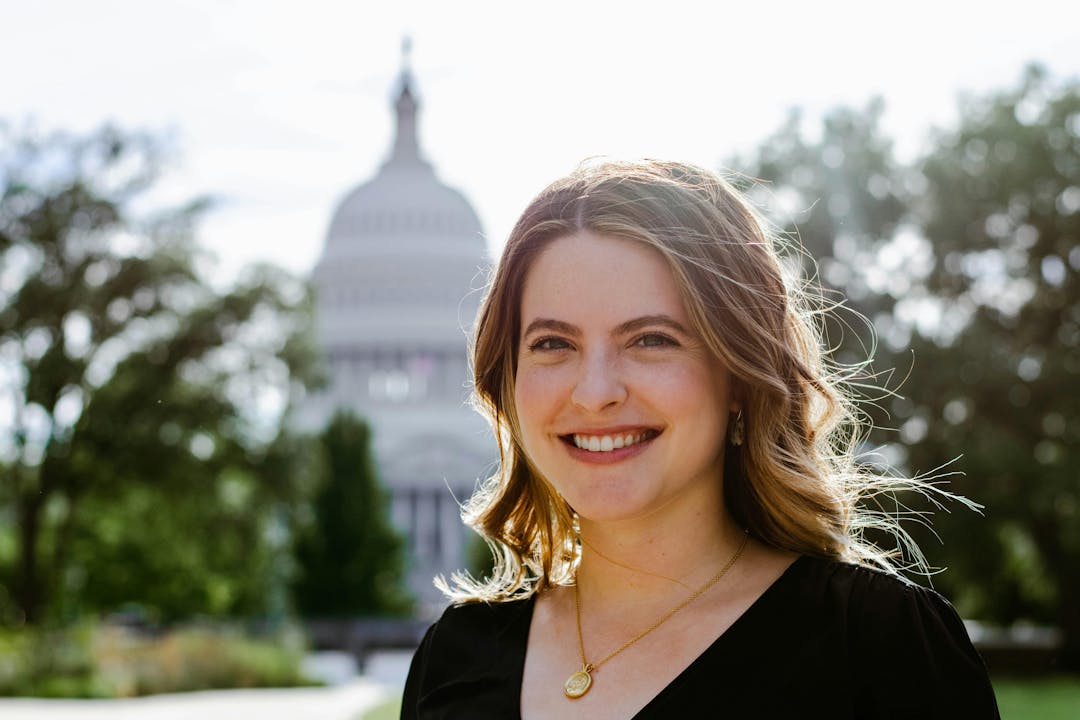The Behavioral Paradoxes of Air Conditioning
How do we escape the brain-melting effects of hot weather? In affluent countries, many of us cope with the heat by cranking up the AC. But as we know too well, AC is also a major source of emissions, speeding up climate change even more.
Air conditioning: A vicious cycle
Even at the best of times, we’re not great at prioritizing our future selves. When it’s hot outside and we become angry and irritable, we become even more prone to hyperbolic discounting, which causes us to place more value on immediate gains than we do on larger, long-term ones. Thus, when we crank up the AC, we perpetuate the air conditioning paradox.
But our reliance on AC is paradoxical in more ways than one. At the same time that AC is helping to make the planet hotter, it’s also reducing our psychological tolerance for said heat. The “adaptive comfort model” outlines how, the more accustomed we become to a certain standard of comfort, the more unbearable the outdoor heat feels to us.1,2
References
- Romm, C. (2016, August 12). Too Much Time in Air-Conditioning Is Warping Your Ability to Handle Heat. The Cut. Retrieved from https://www.thecut.com/2016/08/too-much-air-conditioning-is-warping-how-you-handle-heat.html
- Economy, P. (2021, January 5). How All That Air Conditioning Is Messing With Your Mind. Inc.com. Retrieved from https://www.inc.com/peter-economy/how-all-that-air-conditioning-is-messing-with-your-mind.html
- Raypole, C. (2020, September 23). Climate Change Taking a Toll on Your Mental Health? How to Cope With ‘Eco-Anxiety.’ Healthline. Retrieved from https://www.healthline.com/health/eco-anxiety#tips-for-kids
- Bourque, F., & Cunsolo Willox, A. (2014, August). Climate change: The next challenge for public mental health? International Review of Psychiatry, 26(4), 415–422. https://doi.org/10.3109/09540261.2014.925851
- Hickman, C. (2020, October 1). We need to (find a way to) talk about . . . Eco-anxiety. Journal of Social Work Practice, 34(4), 411–424. https://doi.org/10.1080/02650533.2020.1844166
- Over two-thirds of young people experience eco-anxiety as Friends of the Earth launch campaign to turn anxiety into action. (n.d.). Friends of the Earth. Retrieved from https://friendsoftheearth.uk/climate/over-twothirds-young-people-experience-ecoanxiety-friends-earth-launch-campaign-turn
- Hartley, C. A., & Phelps, E. A. (2012, July). Anxiety and Decision-Making. Biological Psychiatry, 72(2), 113–118. https://doi.org/10.1016/j.biopsych.2011.12.027
- Gillette, H. (2021, July 1). Ways to Prevent Anxiety from Affecting Your Decision-Making. Psych Central. Retrieved from https://psychcentral.com/anxiety/anxiety-and-the-power-of-quick-decisions-how-speeding-up-your-decision-making-can-lower-anxiety
- Bolakhe, S. (2022, April). Rethinking air conditioning amid climate change. Knowable Magazine. https://knowablemagazine.org/article/food-environment/2022/rethinking-air-conditioning-amid-climate-change#:~:text=Refrigerants%20are%20chemicals%20that%20are,a%20major%20impact%20on%20climate.
- Alan Miller (Ed.). (2020). Cooling Emissions and Policy Synthesis Report. In UN Environment Programme. https://wedocs.unep.org/bitstream/handle/20.500.11822/33094/CoolRep.pdf?sequence=1&isAllowed=y
- Underwood, E. (2021, June 23). How to Prevent Air Conditioners from Heating the Planet. Scientific American. https://www.scientificamerican.com/article/how-to-prevent-air-conditioners-from-heating-the-planet/
- How India is solving its cooling challenge. (2020, February 8). World Economic Forum. Retrieved from https://www.weforum.org/agenda/2019/05/india-heat-cooling-challenge-temperature-air-conditioning
- History of Air Conditioning. (n.d.). Energy.gov. Retrieved from https://www.energy.gov/articles/history-air-conditioning
- Butler, C. (2018, July 4). The war over the thermostat and the psychology of air conditioning. CBC. https://www.cbc.ca/news/canada/london/london-ontario-office-too-cold-hot-air-conditioning-1.4732505
- Julien, A. (2019, July 26). Here Are 6 Science-Backed Ways to Keep Buildings Cool Without Air Conditioning : ScienceAlert. Retrieved from https://www.sciencealert.com/there-s-other-ways-to-keep-buildings-cool-without-energy-intensive-air-conditioning
- Coppola, I. G. (n.d.). Eco-Anxiety in “the Climate Generation”: Is Action an Antidote? UVM ScholarWorks. Retrieved September 8, 2022, from https://scholarworks.uvm.edu/envstheses/71/
- Palmiter, D., Alvord, M., Dorlen, R., Comas-Diaz, L., Luthar, S. S., Maddi, S. R., O’Neill, H. K., Saakvitne, K. W., & Tedeschi, R. G. (2020, February). Building your resilience. American Psychological Association. https://www.apa.org/topics/resilience/building-your-resilience
- Environmental Identity. (2021, April 21). Climate Psychology Alliance. https://www.climatepsychologyalliance.org/handbook/281-environmental-identity
- United Nations Environment Programme and International Energy Agency (2020). Cooling Emissions and Policy Synthesis Report. UNEP, Nairobi and IEA, Paris.
About the Author
Lindsey Turk
Lindsey Turk is a Summer Content Associate at The Decision Lab. She holds a Master of Professional Studies in Applied Economics and Management from Cornell University and a Bachelor of Arts in Psychology from Boston University. Over the last few years, she’s gained experience in customer service, consulting, research, and communications in various industries. Before The Decision Lab, Lindsey served as a consultant to the US Department of State, working with its international HIV initiative, PEPFAR. Through Cornell, she also worked with a health food company in Kenya to improve access to clean foods and cites this opportunity as what cemented her interest in using behavioral science for good.
About us
We are the leading applied research & innovation consultancy
Our insights are leveraged by the most ambitious organizations
“
I was blown away with their application and translation of behavioral science into practice. They took a very complex ecosystem and created a series of interventions using an innovative mix of the latest research and creative client co-creation. I was so impressed at the final product they created, which was hugely comprehensive despite the large scope of the client being of the world's most far-reaching and best known consumer brands. I'm excited to see what we can create together in the future.
Heather McKee
BEHAVIORAL SCIENTIST
GLOBAL COFFEEHOUSE CHAIN PROJECT
OUR CLIENT SUCCESS
$0M
Annual Revenue Increase
By launching a behavioral science practice at the core of the organization, we helped one of the largest insurers in North America realize $30M increase in annual revenue.
0%
Increase in Monthly Users
By redesigning North America's first national digital platform for mental health, we achieved a 52% lift in monthly users and an 83% improvement on clinical assessment.
0%
Reduction In Design Time
By designing a new process and getting buy-in from the C-Suite team, we helped one of the largest smartphone manufacturers in the world reduce software design time by 75%.
0%
Reduction in Client Drop-Off
By implementing targeted nudges based on proactive interventions, we reduced drop-off rates for 450,000 clients belonging to USA's oldest debt consolidation organizations by 46%




















